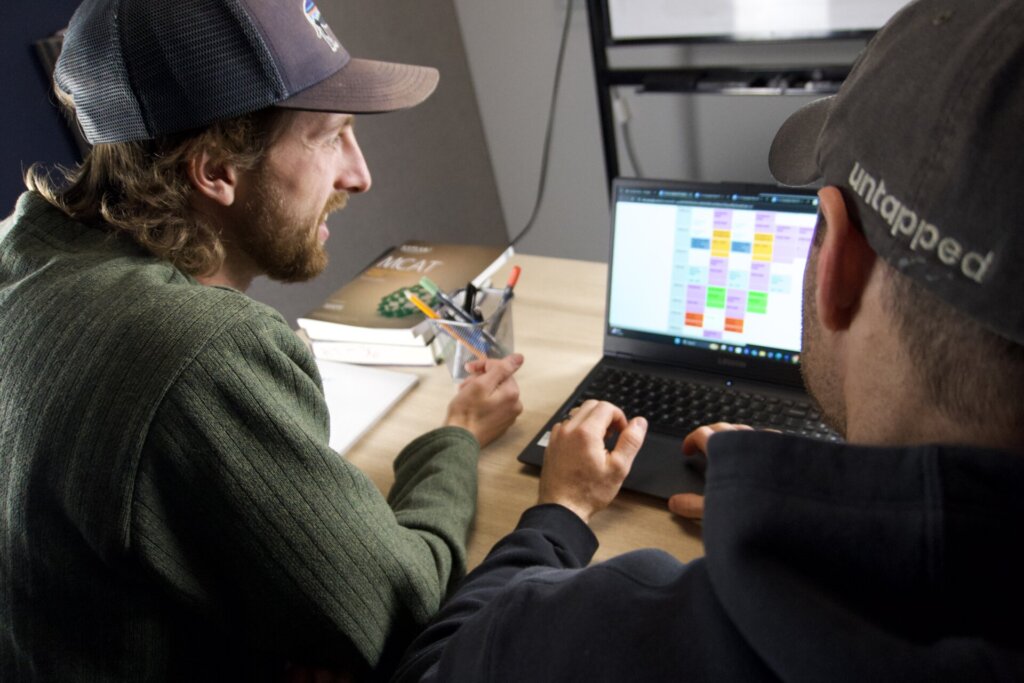In a recent talk, Demis Hassabis, Nobel laureate and CEO of Google DeepMind, emphasized that the most important skill for students in a rapidly changing world is “learning to learn.” I couldn’t agree more.
When students graduate, they’ll step into a world transformed by technology, reshaping careers and industries in ways we can’t yet imagine. “Learning to learn” means developing an awareness of our own thinking processes, known as metacognition.
As parents and educators, our role is to help our children build their metacognitive skills and help them become reflective thinkers who can adapt and grow no matter what the world looks like.
What is Metacognition and Why it Matters

Metacognition is simply “thinking about your thinking.” It’s the ability to notice and understand your own learning process, helping you plan, solve problems, and adjust strategies when things don’t go as planned.
When students understand how their minds work, they become better problem-solvers, more flexible thinkers, and can adapt to the challenges they’ll face in our rapidly evolving world.
The Power of Questions
Questions do more than just gather information; they provoke deep thinking, reflection, and self-awareness.
While surface-level questions (e.g., “What grade did you get?”) provide basic facts, follow-up questions help students to reflect more deeply and provide insights about how they learn.
Types of Questions That Improve Metacognition
Research shows that students who regularly engage in self-questioning improve their school and extracurricular outcomes.
To improve a child’s self-awareness and learning capabilities, we want to focus on 3 types of questions:
- Planning: Before starting a task, ask questions about their approach, and potential challenges.
Example Planning Questions:
- “What’s your plan for tackling this task?”
- “What challenges might you face, and how will you prepare for those?”
- Monitoring: During the task, ask questions that help your child assess their progress and adjust their strategies as needed.
Example Monitoring Questions:
- “How’s your current approach working?”
- What adjustments have you made to the challenges you are facing?”
- “What’s clear about the path forward and what’s still confusing?”
- Evaluating: After completing the task, use reflective questions to help your child analyze their performance, what worked well, and areas for improvement.
Example Evaluating Questions:
- “How do you think that it went? What strategies worked well?”
- “What was difficult, and how did you manage it?”
- “What would you do differently next time for better results?”
- “What did you learn about your learning process?”
Remember that there is no “correct” way to learn. However, even having a basic understanding of how you learn information and how to pivot when things don’t go as planned, provides the building blocks for learning.
Going One Question Deeper
One of the challenges I often see from our families and educators is we stop one question before getting to our students to deeply reflect. Consider these three conversational examples:
Basic Questioning:
Parent: Can you go to office hours for math on Thursday?
Child: Yes.
Parent: What are you going to do during office hours?
Child: Work on math homework.
Parent: Great. I believe it will help on your next math test.
While this conversation helps the student prepare for the exam, it doesn’t encourage deep reflection, understanding, or long-term improvement in learning.
Intermediate Questioning:
Parent: Can you go to office hours for math on Thursday?
Child: Yes.
Parent: What are you going to bring to office hours?
Child: My math homework. I am going to bring problems 19-23. I didn’t understand them.
Parent: That’s great! I love how you are being proactive by completing your homework and being intentional about which problems to bring. Thanks for doing that.
This level of questioning prompts the child to think more specifically about their actions and the problems they will focus on. The student clearly has a plan and is thinking about how to use office hours to improve their understanding of the material.
Advanced Questioning:
Parent: Can you go to office hours for math on Thursday?
Child: Yes.
Parent: What are you going to bring to office hours?
Child: My math homework. I am going to bring problems 19-23. I didn’t understand them.
Parent: What is the common theme in those questions, and why do you think you chose those
to bring to office hours?
Child: All of these problems have more than 4 steps, and I keep getting lost before the 4th step.
Parent: Any idea why that is?
Child: Before the 4th step, I get lost in my numbers.
Parent: Ask your teacher about how you organize your problems so you won’t get lost in the numbers. Please let me know what she says so I can help you tonight.
This conversation involves questions requiring the child to analyze their thought processes and learning strategies deeply. The child understands where their understanding is breaking down, so they can use office hours purposefully. The questioning explores the reasons behind their choices and encourages problem-solving.
Questioning for Learning to Learn
To maximize the impact of questions on your child’s metacognition and self-understanding, consider the following strategies:
1. Be Curious: Approach conversations with genuine interest (not judgement) in your child’s thought process.
2. Encourage Self-Reflection: Ask questions that prompt your child to reflect on their learning processes and evaluate their outcomes.
3. Promote Self-Exploration: Encourage your child to explain their thinking and reasoning. This can help clarify their understanding and identify gaps in their knowledge.
4. Foster a Growth Mindset: Use questions to encourage your child to view challenges as opportunities for growth and learning. This can help build resilience and a positive attitude towards learning.
5. Build-up to Challenging Questions: Start with more straightforward questions and gradually increase complexity as your child becomes more comfortable with self-reflection. This helps build confidence and deepens their metacognitive skills over time.
Above all: Your questions should focus on your child’s learning process, strategies, and growth rather than their abilities or character. Frame questions in a way that encourages self-reflection and problem-solving, not about their current abilities.
Preparing Students for a Changing World
The future our children will inherit is one of constant change. In this world, the ability to “learn to learn” is no longer a luxury, it is the most important skill.
By focusing on metacognition, we help them understand how they learn, not just what they are taught. This is the foundation they need to adapt, innovate, and thrive in a world we can’t yet imagine.






